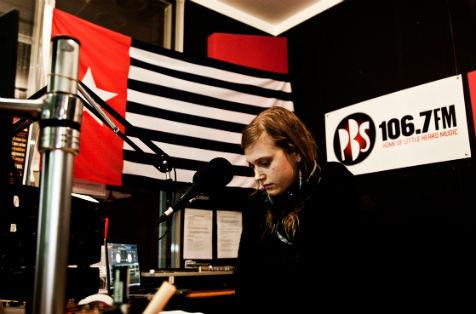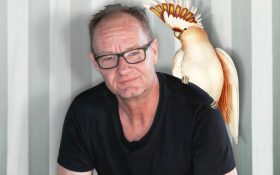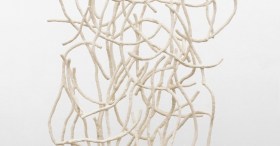The enjoyment that I get out of doing my show, the incredible people that I get to meet, the stories that we are able to share with listeners, the enlightenment I get from the array of music that gets sent to me, the festivals and gigs I’m able to attend, being part of the incredible and inspiring Melbourne music community and most of all hearing from listeners about how they have been effected and moved by the show would never amount to any monetary sum. I do it because I love it and I believe we have such strong voices in our community and such talent locally that it would be criminal to not provide a platform for this to be heard. Without community radio many of these musicians, activists and storytellers would go unheard and I believe this would tarnish our cultural identities and awareness of issues going on outside of the public eye. It is imperative to a democracy to have independent media, unswayed in it musical programming and topic-based discussions.
Community radio could never exist however, without the support of the countless volunteers who donate their time to presenting shows, answering the phone and sorting out CDs in the, at times, chaotic music library. When reflecting on my commitment to PBS, the hours I spend getting my show together and then presenting it for two hours once a week, it never needs justifying.
It amazing to be a part of, but it also essential that community radio exist as a pillar to the arts. The arts are so important to society and community through shaping our culture and identity and serve as a palatable medium to assert people’s right to be heard. The story telling nature of the arts also allow untold histories be explored, outside of mainstream education and media that at times emits such occurrences. Much of Australia’s First Nation history was taught to me thought the songs of storytellers such as Kev Carmody, Joe Geia, Paul Kelly, Kutcha Edwards, Coloured Stone & No Fixed Address. World wide atrocities, such as the Indonesian occupation and human rights abuses in West Papua would have never been brought to my attention were it not for artists such as the Black Brothers, Tabura, Blue King Brown, Airileke and Rize of the Morning Star.
Being part of the movement to get these stories heard is what encourages me to continue volunteering with PBS and supporting community radio. Initially, my introduction to radio came through volunteering with SYN FM, the Student Youth Network, a fantastic organization that empowers young people through teaching them radio production and presenting skills. I presented a program that showcased local talent within Melbourne’s diverse communities as I felt they were underrepresented in mainstream media and the arts industry. After building my confidence at SYN, I was so fortunate to be able to move onto PBS to present Big Mob. Through my show, I strive to continue to bring worthy attention to artists from Australia’s diverse communities, First Nations and around the Pacific. I feel honoured to be able to open up new audiences for these artists and passing the microphone over to allow their music, culture and stories to be heard.
Not only is volunteering at PBS a great opportunity to support and enhance our cultural landscape, but for those looking for careers within the music industry, it is a way to open up networks and be part of a supportive community. Your networks and contacts are your life and blood in this industry. You are far better off building these yourself and creating personal connections at the beginning than paying someone, like a publicist, to use their already made contacts. You need to be the driver of your career and you need to know how to do the business side of things yourself. This involves some serious time management but it is incredibly empowering and will enable you to create a sustainable career in the arts. Volunteering is the way in to what at times can seem like an inaccessible industry.
Community radio depends on our volunteers, our subscribers and our listeners’ donations.If you can’t volunteer you can contribute by joining PBS.
But that is not enough to ensure we survive. The grand tradition of volunteer-run community radio is under threat. If the government does not address the shortfall of $1.4 million needed to secure a digital future for community radio, community radio around the country will cease to exist.
You can show your support by signing the Commit to Community Radio petition that calls on the Federal Government and Minister Conroy to reinstate their promise for funding to digital community radio. Like what happened with TV, analogue radio will be eventually phased out, switching over to digital.
Community radio is an important voice for under-represented styles of music and an core part of the arts sector. It deserves support.





